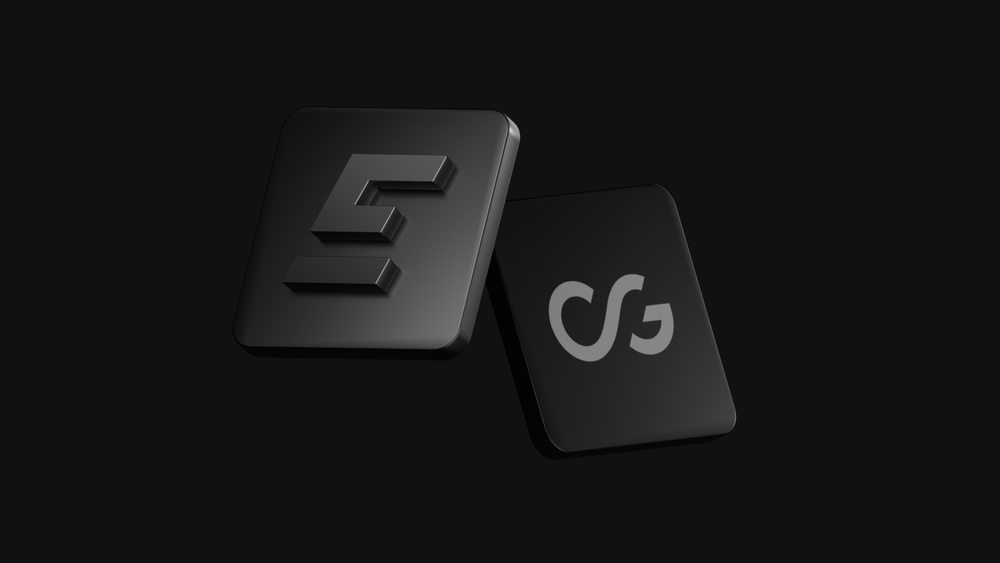EMCD vs CoinGate Overview: Key Facts, Use Cases, and Business Fit

From plug-and-play checkouts to fully integrated crypto infrastructure — this breakdown helps you choose the right gateway for your business.
Choosing a crypto payment solution isn’t just a tech decision — it shapes your revenue flow, customer experience, and operational flexibility. CoinGate and EMCD both serve as crypto gateways, but they solve very different problems. One is built for fast onboarding. The other? For long-term scaling.
Whether you're a WooCommerce shop accepting your first bitcoin payment or a fintech platform building custody and payouts into your stack, this review compares what each platform really offers — from supported cryptocurrencies and fees to developer access, liquidity control, and business-fit use cases.
CoinGate: one-click crypto checkout for e-commerce
CoinGate is a European crypto payment gateway designed for merchants who want to accept cryptocurrencies with minimal setup. Its main appeal lies in simplicity — especially through the trusted coingate woocommerce plugin, which integrates directly with e-commerce platforms like Shopify, Magento, and Wix.
The platform supports 70+ coins, including bitcoin, ethereum, USDT, and other stablecoins. CoinGate handles conversion, settlement, and checkout UX — turning coingate crypto payments into fiat in real time to reduce volatility exposure. It also offers REST APIs, invoice tools, and POS functionality for in-person merchants. With EU-based compliance and years of market presence, CoinGate is ideal for small and medium businesses that want to accept crypto payments without building crypto infrastructure.
EMCD: infrastructure for businesses that want more than just payments
Unlike most payment processors, EMCD is a full-stack crypto-fintech platform. Known globally for its top-10 bitcoin mining pool (~3% of network hash rate), EMCD has evolved into a business-ready ecosystem that goes beyond checkouts.
Here’s what’s inside:
- A multicurrency wallet (23+ coins) with 2FA and secure custody
- Coinhold — a crypto saving tool with daily rewards and up to 14% APY
- P2P exchange with 120+ trading pairs and fiat support
- A customizable crypto payment processor with white-label options for fintechs and platforms
Everything runs on one compliant backend — with 7+ years of uptime, ISO-level security, and support in 80+ countries. Whether you're launching a new digital product or scaling global crypto payments, EMCD gives your business tools to earn, store, and process crypto without switching platforms.
CoinGate vs EMCD: which crypto gateway does what best?
One is for simple sales. The other builds ecosystems. Let’s compare the key features.
| Feature | CoinGate | EMCD |
| Wallet Support | No native wallet | Yes — multicurrency wallet (23+ coins) |
| Payment Gateway | Yes — checkout, POS, API | Yes — with white-label options |
| Supported Cryptocurrencies | 70+ assets | 23+ coins + 120+ P2P pairs + 13 mined |
| Reporting Tools | Basic dashboard | Advanced dashboard + earnings insights |
| WooCommerce Integration | Yes — direct plugin | No plugin, API-first access |
| Developer Access / API | Yes — REST API | Yes — modular, scalable infrastructure |
Supported cryptocurrencies: volume vs versatility
CoinGate lets businesses accept over 70 cryptocurrencies, including bitcoin, ethereum, and a wide range of altcoins — making it a solid fit for retail environments focused on trading and broad checkout options.
EMCD, while offering fewer assets directly in-wallet (23+), expands functionality through 120+ P2P trading pairs and 13 mineable coins — with dual-mining support for efficiency. It’s a platform built around control, not just quantity — giving businesses the flexibility to store, swap, and monetize digital assets across multiple flows and earning models.
Fees and pricing: scale-friendly or fixed-rate?
CoinGate applies a flat-rate pricing model (usually around 1%), which simplifies onboarding and works well for businesses converting payments to fiat. But the model is static — there’s no upside for higher volume or stored assets.
EMCD offers more flexibility. Businesses can compare payout structures and reduce their fees to 0% by settling via Coinhold — a built-in earning tool that turns idle assets into yield. The result? Every processed transaction becomes a chance to earn, not just transfer value.
Developer tools and integration options
CoinGate offers quick integration with major platforms, especially through its trusted coingate woocommerce plugin — a popular choice for stores wanting fast crypto checkouts. It also provides a REST API for embedding basic payment flows into custom sites.
EMCD, in contrast, is infrastructure-grade. It offers modular APIs that cover wallets, P2P, earning tools, and crypto settlement — all white-labeled for fintechs, Web3 apps, or payment platforms building their own crypto layer. If you're looking to launch branded wallets or build deeper integration without vendor sprawl, EMCD is built for that.
Security and compliance: retail-ready vs enterprise-grade
EMCD is designed for institutional-level security. It runs on ISO-certified systems, enforces 2FA, and uses AML screening for all wallet activity. Businesses benefit from automated monitoring, internal audits, and secure custody — aligned with international regulatory standards.
CoinGate holds a virtual currency operator license in the EU and supports basic KYC for business accounts. It’s a compliant solution for payment acceptance, but its security stack doesn’t go beyond what’s needed for merchant checkout.
For companies handling large flows or storing funds, EMCD delivers a compliance-ready backend trusted across 80+ countries.
Merchant dashboards and reporting features
CoinGate provides a clean interface with downloadable invoices, payment history, and standard reports — sufficient for SMBs that need to track orders and payouts.
EMCD goes several steps further. Businesses get access to real-time performance dashboards across mining, wallets, referral activity, Coinhold returns, and P2P flows. For partners and platform builders, EMCD also includes merchant analytics and custom reporting solutions that help optimize growth and user retention.
Payout speed and settlement options
CoinGate settles payments in fiat or crypto — typically within 1–2 business days, depending on the method. It’s optimized for simplicity, not speed.
EMCD enables near-instant transactions. Withdrawals to external wallets can be executed on demand. Coinhold interest is paid out daily, and users retain full control over asset flows — whether they’re storing, reinvesting, or converting. For businesses that require rapid access to earnings and global liquidity, EMCD offers more real-world agility.
User experience: from checkout to dashboard
CoinGate offers a clean, no-frills user interface, focused on checkout flows and invoice creation. It’s easy to use for merchants, though more limited when it comes to customization or multi-user operations.
EMCD delivers a unified user experience across mobile and desktop, integrating mining stats, wallet activity, and passive earnings in one dashboard. Onboarding is frictionless, with intuitive UI logic that supports both beginner and advanced business use. Whether you're running an internal treasury or building a public-facing service, EMCD’s interface is built to scale.
Customer support that businesses can rely on
EMCD provides 24/7 live support with a response time of under 15 minutes — a major advantage for users managing critical crypto flows. Dedicated channels and technical assistance are available for businesses at every level.
CoinGate, by contrast, relies on email-based support, which works for basic issues but may delay resolution for time-sensitive requests. For high-volume operations, real-time help makes a real difference.
Which platform fits your business best?
CoinGate is a great platform for online stores and service providers that want to accept crypto payment quickly — especially through ready-made plugins like WooCommerce. It’s simple, reliable, and low-effort to implement.
For example, a small clothing brand using Shopify can start accepting crypto within a day using CoinGate’s WooCommerce plugin — no custom dev needed.
EMCD is built for complex B2B needs — from fintechs and exchanges to mining-linked businesses.
On the other hand, a Web3 platform building a custom staking product can use EMCD’s white-label APIs to launch branded wallets and payouts in weeks, not months.
Pros and cons of CoinGate and EMCD
Still deciding which crypto payment platform fits best? Here’s a practical comparison of the top strengths and limitations of each — based on features, flexibility, and business fit.
✅ CoinGate – Pros
- Quick integration via WooCommerce and other plugins
- Clean UI for basic checkout and invoicing
- Accepts 70+ cryptocurrencies, including Bitcoin and Ethereum
- Simple fiat conversion built-in
- Licensed EU payment operator
❌ CoinGate – Cons
- No native wallet or custody
- Limited analytics and merchant reporting
- Email-only customer support
- Not ideal for high-volume or infrastructure needs
✅ EMCD – Pros
- Full-stack infrastructure: wallet, mining, Coinhold, and P2P
- White-label API options for fintechs and platforms
- ISO-certified security, AML checks, 2FA
- Instant withdrawals, daily rewards, and partner dashboards
- 24/7 live support with fast SLA
❌ EMCD – Cons
- Requires deeper technical integration
- May be overbuilt for very small or one-off merchants
- No direct WooCommerce plugin (API-first approach)
Conclusion: which platform should you choose?
If you need quick setup and simple checkout tools, coingate payment is a solid choice for small businesses and e-commerce. But if you’re building high-volume flows, want custody, or need infrastructure beyond checkout, EMCD is the better fit. It’s a long-term platform for crypto-native business growth.
FAQ
What is the main difference between CoinGate and EMCD?
CoinGate is built for fast crypto checkout via WooCommerce and similar plugins. EMCD provides deeper infrastructure — from wallets and P2P to mining and flexible payouts — for businesses scaling crypto operations.
Which platform offers more control over fees and earnings?
CoinGate uses a fixed fee (typically 1%) with fiat settlement. EMCD allows businesses to reduce fees to 0% through Coinhold — turning crypto flows into yield.
Which crypto gateway is easier to integrate into an online store?
CoinGate offers native plugins for platforms like Shopify and Magento. EMCD requires API integration but supports full-stack customization for fintech and Web3 use cases.
How do payout options differ between CoinGate and EMCD?
CoinGate settles in fiat or crypto within 1–2 days. EMCD enables near-instant wallet withdrawals, plus daily earnings via Coinhold.
Is CoinGate secure for business use? What about EMCD?
CoinGate is an EU-licensed virtual currency operator — suitable for basic compliance needs. EMCD offers ISO-level security, AML checks, 2FA, and enterprise-grade support.
Who should use CoinGate vs EMCD?
Use CoinGate if you’re an online store accepting crypto payments without deep integration. Choose EMCD if you’re a fintech, platform, or exchange building crypto products or infrastructure.
Need a crypto gateway that fits your business?
CoinGate is great for fast setup — but EMCD gives you tools to scale, earn, and own the infrastructure.
👉 Explore EMCD for Business — and turn payments into growth.












